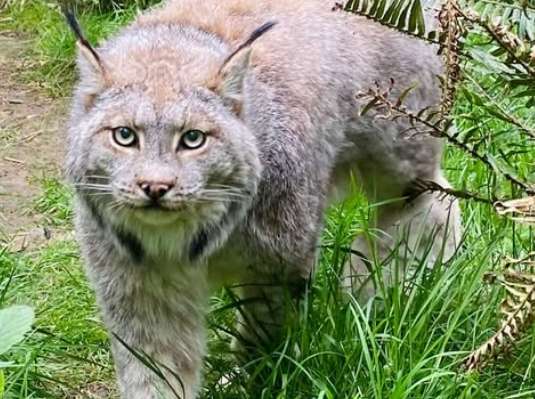Fatal Viral Epidemic Threatens Cougar Population in the United States
The Wild Felid Advocacy Center, a sanctuary in Washington state dedicated to the preservation and care of wild cats, has experienced a devastating outbreak of highly pathogenic avian influenza (HPAI), commonly known as bird flu. This unprecedented event has resulted in the loss of twenty big cats, including a Bengal tiger, four cougars, five African servals, four bobcats, two Canada lynx, and other feline species, leaving only 17 cats remaining at the sanctuary. The outbreak, which occurred between late November and mid-December 2024, has been described by sanctuary director Mark Mathews as unlike anything they’ve ever witnessed, highlighting the virulent nature of the virus. The sanctuary is currently under quarantine and closed to the public in an effort to contain the spread of the infection.
The HPAI virus primarily spreads through respiratory secretions and direct contact between wild birds. However, carnivorous mammals, particularly cats, are also susceptible to the infection through the consumption of infected birds or contaminated materials. The virus poses a significant threat to feline populations, as it can rapidly progress, often leading to severe pneumonia-like symptoms and death within 24 hours of the onset of illness. The vulnerability of cats to HPAI underscores the seriousness of the outbreak at the Wild Felid Advocacy Center and the profound impact it has had on the sanctuary’s population.
The outbreak at the Washington sanctuary highlights a broader concern regarding the spread of HPAI in the United States. The virus has been detected in various animal populations, including cattle, poultry, and even humans, raising concerns about its potential impact on both animal and public health. While the Centers for Disease Control and Prevention (CDC) maintains that the risk to the general public remains low, the outbreak at the Wild Felid Advocacy Center underscores the potential for HPAI to spread to susceptible mammalian populations and cause significant mortality.
The CDC has reported 61 human cases of HPAI in the U.S. since April 2024, with most cases presenting mild symptoms. However, a severe case requiring hospitalization in Louisiana underscores the potential for severe illness in humans. The impact of HPAI on livestock populations has also been significant, prompting California Governor Gavin Newsom to declare a state of emergency to address outbreaks in dairy cattle. These incidents highlight the multifaceted nature of the HPAI threat and the need for continued vigilance and preventative measures.
The tragedy at the Wild Felid Advocacy Center serves as a stark reminder of the vulnerability of captive wildlife populations to infectious diseases. Sanctuaries and zoos play a crucial role in the conservation of endangered and threatened species, and the loss of such a significant number of animals due to a disease outbreak represents a significant setback for conservation efforts. The incident emphasizes the critical need for robust biosecurity measures and proactive disease surveillance in captive wildlife facilities to prevent and mitigate future outbreaks.
The ongoing efforts to contain the HPAI outbreak at the Wild Felid Advocacy Center underscore the importance of collaborative efforts between wildlife organizations, government agencies, and veterinary professionals. The rapid response and implementation of quarantine measures are crucial to preventing further spread of the virus and protecting the remaining cat population at the sanctuary. The lessons learned from this devastating event will be invaluable in informing future strategies for disease prevention and management in captive wildlife populations, contributing to the long-term conservation of these valuable species. The sanctuary’s experience serves as a case study for the challenges faced by conservationists in protecting vulnerable species from emerging infectious diseases.
Share this content:












Post Comment